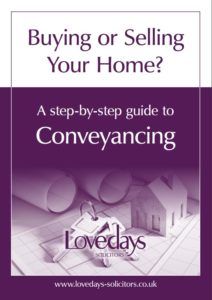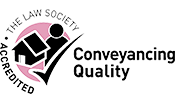- You & Your Family
- Your Job
- Family Law
- Divorce and Separation
- Finances on Divorce
- Dissolution of Civil Partnership
- Separation
- Cohabitation Agreements
- Finances on Breakdown of Cohabitation Relationship
- Prenuptial Agreements
- Grandparents' Rights
- Step-Parents' Rights
- Child Maintenance
- Parental Responsibility
- Paternity Disputes
- Buying Property Jointly
- Probate
- Wills
- Your Property
- Conveyancing
- Partnerships
- Disputes
- Boundary Disputes
- Dealing with Rent Arrears
- Japanese Knotweed Claims
- Landlord and Tenant Disputes
- Landlord Harassment & Illegal Eviction
- Negligence Claims Against Builders & Developers
- New Build Property Disputes
- Noisy Neighbour Disputes
- Personal Debt Collection
- Property Misrepresentations Claims
- Rights of Way Disputes
- Section 21 No Fault Evictions
- TOLOTA Claims
- Tree & Hedge Neighbour Disputes
- Your Business
- About Us
Landlord Harassment & Illegal Eviction Solicitors
Harassment is considered to be any action taken by your landlord to intentionally disrupt your home life or make you leave (illegal eviction). If this behaviour is persistent or is done in a threatening manner, you may be a victim of harassment and have grounds to make a claim.
{quote}
What Constitutes Harassment?
In the UK, harassment is normally conduct by your landlord that is intended to cause you to leave the property or make it difficult for you to live there. Behaviour from a landlord that could be considered harassment includes persistent actions such as:
- Unwanted visits or contact.
- Threats of eviction.
- Withholding repairs or services.
- Interfering with your enjoyment of the property.
. Other examples harassment include:
- Changing the locks without your permission.
- Cutting off utilities.
- Threatening you or your belongings.
- Making false accusations against you.
If you believe that you’re the victim of harassment from your landlord, please contact our team who can advise you on the best course of action.
What is Illegal Eviction?
Illegal eviction is when your landlord, or another party acting on their behalf, forces you to leave the property without following the correct legal procedures. It is a criminal offence under the Prevention from Eviction Act 1977 to evict a tenant from a property without the tenant’s consent or without an order from the Court, and landlords who are found guilty can be fined and even imprisoned.
If you have been illegally evicted you have certain rights and in certain circumstances you may be able to apply to the Court to go back into your home. However, if a possession order is granted by the Court, your landlord can apply to the bailiffs to evict you. It is always important to understand your position before the landlord obtains a possession order from the Court.
Some examples of things that are considered illegal eviction include:
- Changing the locks while the tenant is out
- Throwing the tenant's belongings out of the property
- Threatening or harassing the tenant into leaving
- Cutting off the tenant's utilities
- Making the property uninhabitable
{quote}
Tenant Rights
Tenants of a property have a number of rights including things such as the right to live in a safe and healthy home, have repairs carried out in a timely manner, protection from eviction without due process, privacy and enjoyment of the property and to have their deposit returned at the end of their tenancy.
There are other considerations to make when it comes to tenants rights. For example, for shorthold tenancies, tenants have the right to stay in the property for a minimum of six months unless the landlord provides a valid reason for eviction.
When to Let Your Landlord In
In general you should only let your landlord into the property under the following conditions:
- They have provided at least 24 hours’ notice in writing.
- They are entering the property to carry out repairs or inspect the condition of the property.
- They are entering the property in an emergency.
Some tenancies also require you to let your landlord into the property towards the end of the tenancy to allow them to market the property or show round possible new tenants.
If your landlord has not provided a valid reason to enter the property, you have the right to refuse them entry.
Legal Procedures for Eviction
The legal procedures for evicting a tenant from a property can vary depending on the type of tenancy agreement made with the landlord. However, in general a landlord must take the following steps to evict a tenant from their property:
- Serve a notice to quit outlining the reasons for eviction and the date by which the tenant must leave the property.
- Apply to the court for possession order in the event that the tenant refuses to leave the property.
- Obtain a warrant for possession with which the bailiffs will evict the tenant if they have refused to leave.
- Eviction by bailiffs on the date of the eviction, where the bailiffs will arrive at the property and provide the tenant with a reasonable amount of time leave.
How Lovedays Solicitors Can Help
If you believe you’re being harassed or illegally evicted from your home, the team here at Lovedays Solicitors are here to help. Our team of specialist harassment and eviction lawyers can provide legal consultations to help guide you through the legal process as well as provide advice of the best course of action based on the viability and evidence available in your case.
Additionally, we can provide mediation services and negotiate with your landlord on your behalf giving you the peace of mind that the issue can be resolved amicably and away from the courts.
{quote}
Frequently Asked Questions
If you are being harassed or illegally evicted, you have a number of rights, including the right to:
- Stay in your home until the landlord has obtained a court order to evict you.
- Seek legal advice and representation.
- File a complaint with your local housing authority.
If you are being harassed or illegally evicted, you should:
- Keep a record of all communications with your landlord.
- Document any evidence of harassment or illegal eviction, such as photos, videos, and witnesses.
- Contact your local housing authority or a legal aid organisation for assistance.
The time it takes to resolve landlord harassment or illegal eviction cases can vary depending on the specific facts of the case and the court system in which the case is filed. However, it is important to note that these cases can often be complex and time-consuming.
Get Support Today
Speak to our team today to find out more about harassment and illegal eviction as well as receive guidance on the legal process and advice on the viability of your case.

Free Guide
If you don’t know your leasehold from your freehold, then get our Free Conveyancing Guide. It contains details about the steps you will need to take with any property transactions. The Guide giving you detailed guidance on what your lawyer will be doing for you and what to look out for.


Lovedays Solicitors, Brooke-Taylors Solicitors, Potter and Co Solicitors and Andrew Macbeth Cash and Co Solicitors are the trading names of Derbyshire Legal Services Limited which is a company registered in England and Wales under company number 08838592. Registered office Sherwood House, 1 Snitterton Road, Matlock, Derbyshire, DE4 3LZ.
Authorised and Regulated by the Solicitors Regulation Authority under SRA ID number 637916.
-
01629 56660
-
This email address is being protected from spambots. You need JavaScript enabled to view it. -
Sherwood House
1 Snitterton Road
Matlock
Derbyshire
DE4 3LZ
© Copyright 2019 Derbyshire Legal Services Limited | Website by WebWorks